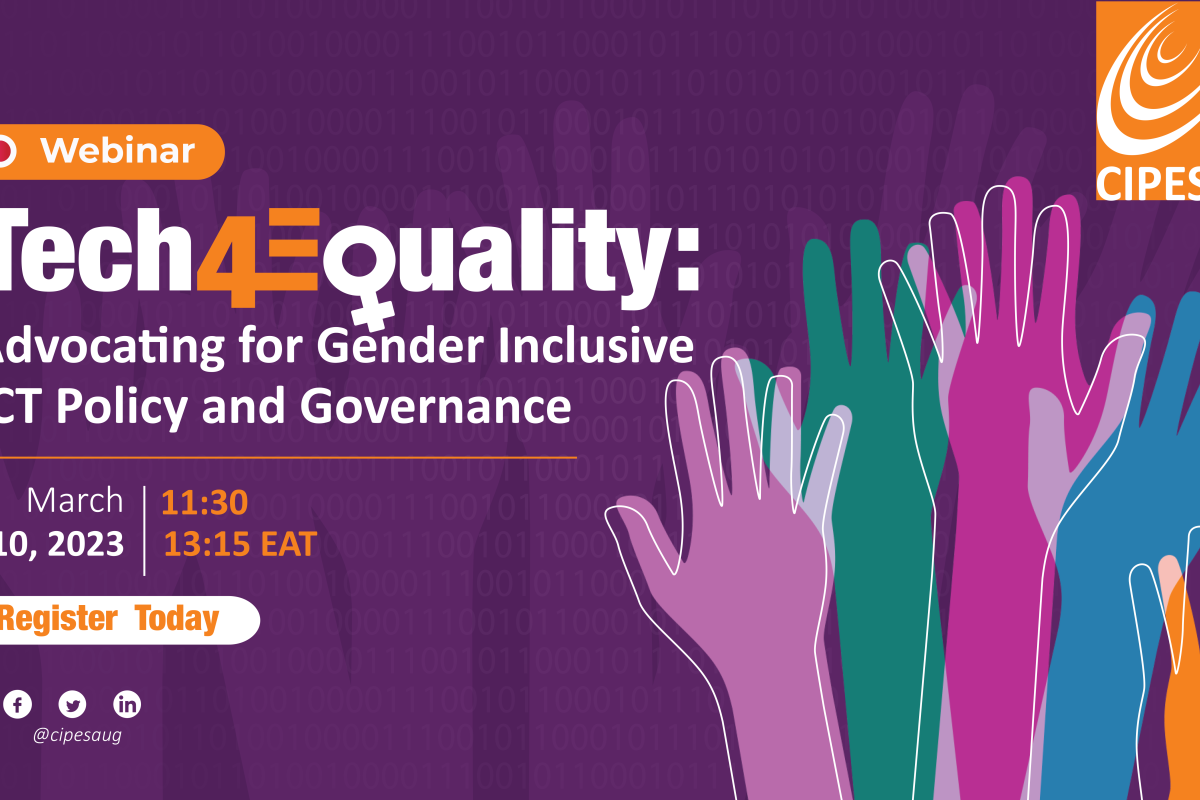By CIPESA Writer |
The Digital Rights and Inclusion Forum (DRIF) is an annual convening hosted by Nigeria based Paradigm Initiative. Themed “Building a sustainable Internet for all”, this year, the event is being hosted in Nairobi, Kenya on 12-14 April. DRIF is a platform where conversations on digital policy in Africa are shaped, policy directions debated and partnerships forged for action.
The Collaboration on International ICT Policy for East and Southern Africa (CIPESA) will host and participate in a range of discussions at DRIF alongside various regional and international partners.
Below are the sessions and workshops CIPESA will participate in.
Examining Disinformation Trends and Effects in Africa
Host: CIPESA
12 April 2023 | 12:15pm – 1:00pm (Nairobi) | Attend
Disinformation is growing to near-pandemic levels in various African countries yet the spectrum of its adverse effects on fundamental rights, civic participation and public safety is not fully known. What is clear is that disinformation undermines the resilience and safety of human rights defenders (HRDs) and journalists, while hampering free expression and public participation. Led by CIPESA, this session will bring together disinformation researchers, fact-checkers and HRDs to discuss trends in disinformation instigators, tactics, pathways, and the effects that disinformation has on their work. It will explore disinformation effects on electoral integrity, the role of political actors as instigators and agents of disinformation, the effects of government counter-measures on civic rights and freedoms online. It will also unpack the role that different actors, including the private sector, ought to play in order to definitively tackle the vice.
Re-designing for a sustainable future through effective digital rights advocacy at the UPR
Host: Small Media Foundation
12 April 2023 | 2:15pm – 3:15pm (Nairobi) | Attend
This session has two major goals — to learn from the past successes and challenges of digital rights advocacy at the UPR and think through ways of building stronger partnerships with stakeholders on the ground. To start with, there will be a presentation on designing campaign and advocacy materials for digital rights at the UPR. After this, the session will take a look back at the last three UPR cycles and digital rights development, identify the successes and challenges and see how these fit into a future for a more vibrant advocacy at the UPR. It will also map the various strategies necessary to pool stakeholders in countries worked on by the UPROAR project together with respect to advocacy for digital rights at the UPR.
The primary goal of such a pool is to have at least one go-to stakeholder that can be approached in each country where UPROAR works for on-the-spot information with respect to digital rights advocacy at the UPR. The post-event value of this session is to have both an evaluation of digital rights advocacy at the UPR so far and strengthen monitoring through partnerships on the ground.
#KeepItOn Election Watch: supporting the fight against internet shutdown in 2023
Host: Access Now
12 April 2023 | 3:30pm – 4:30pm (Nairobi) | Attend
Access Now and the #KeepItOn coalition will be monitoring at least 15 elections in 2023 to ensure that authorities in these countries do not interfere with internet and digital communications throughout the electoral process. This session seeks to provide insights about the #KeepItOn Election Watch campaign to the DRIF participants and explore opportunities of working together with other partners. The session will also be an opportunity for participants to reflect on the challenges, lessons learnt and opportunities faced in the fight against shutdowns. At the end of the session, participants will learn about the various ways in which they can support the #KeepItOn community.
At What Risk to Rights and Internet Freedom? Examining Government Responses to Disinformation
Hosts: Article 19 West Africa, CIPESA, Centre for Human Rights University Pretoria, PROTEGE QV, Global Partners Digital
13 April 2023 | 11:30am – 12:30pm (Nairobi) | Attend
This session will turn attention to actions governments have taken in recent years to pass laws and policies that impact human rights online – particularly freedom of expression – in the name of fighting disinformation. The session will discuss the role of human rights defenders and civil society in countering these actions and calling for change. Specifically, it will look to country case studies utilising the research tool lextoa.org – such as from Uganda and Senegal and also Kenya as the DRIF 2023 host country – where such laws exist and the ways in which civil society has provided analysis, engagement (of media, policymakers, companies) and recommendations to governments on promoting policies that respect human rights. Session participants will be encouraged to ask questions of the panellists and bring their own experiences from differing national contexts across Sub-Saharan Africa to the debate. They will also be invited to contribute to ongoing research and awareness raising of this issue on lexota.org and contribute resources and new material to the site.
Internet Access and Marginalisation in Africa: Experiences Within Africa
Host: Global Voices
14 April 2023 | 9:00am – 10:00am (Nairobi) | Attend
Issues of connectivity have been a major challenge in Africa and the world as a whole. Over the last few years, Africa has experienced exponential growth in internet access spurred by mobile internet, which stood at 28% penetration in 2020. However, internet access and affordability are still a major challenge for the majority of Africans, especially the marginalised rural communities, women, and persons with disabilities. According to the State of Mobile Internet Connectivity 2021, Sub-Saharan Africa has the largest coverage gap (those living in areas without mobile broadband coverage) at 19%, which is more than three times the global average. A new report detailing the cost of mobile data in different markets across the world bears the evidence of why internet use in most of Africa remains low despite the growing broadband internet coverage. This session provides a platform to interrogate barriers to internet access and their exclusionary effect as well as to provide solutions and recommendations to the issues of internet connectivity across Africa
Closed 2-Day Workshop – The Future of Digital Rights in Africa: The Role of Policymakers and Advocacy at the UPR
Hosts: UPROAR & CIPESA
The objective of this workshop is to identify the various and applicable human rights frameworks under international, regional and national frameworks. The session will highlight some of the major provisions of these frameworks and how the UPR can be used to shape the national frameworks. We will also learn how to identify digital rights issues and apply practical solutions to resolving them. By the end of this session, participants will understand the supporting human rights instruments for UPR and how local laws can be made to conform with international standards.





